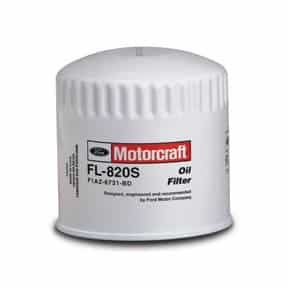Using the Right Oil in Your Car Engine
Oil is the lifeblood of your car engine, lubricating its moving parts and keeping it running smoothly. Using the right oil is essential to ensure maximum performance and longevity of your engine. The manufacturer’s recommended oil is the best choice for your car, as it meets the engine’s needs and specifications.
Using the wrong oil can cause a variety of problems, including reduced engine performance, increased engine wear and tear, and decreased fuel efficiency. It can also lead to engine damage, which can be costly to repair in Kelowna, so always using the right oil for your car is important.

Is it OK to use Fish Oil in my Car Engine?
No, you should not use fish oil in your car engine. Fish oil compound can act as a rust preventative for the body of a car, particularly for areas such as rails, box sections, and doors]. It is not designed or suitable for use in the engine. Using fish oil during an oil change in the engine can lead to severe damage and performance issues. Instead, it is best to use the appropriate engine oil recommended by the car manufacturer for optimal engine performance and protection.
What Happens If You Put the Wrong Oil in Your Car?
Putting the wrong oil in your car can have serious consequences. One of the most common mistakes is using the wrong oil grade. Oil grades get their values from viscosity or thickness, and using the wrong grade can damage engines.
If you use oil that is too thick, it can cause sluggish performance, increased fuel consumption, and engine wear and tear. On the other hand, using oil that is too thin can lead to decreased engine protection, reduced fuel efficiency, and increased oil consumption.
Another common mistake is using the wrong type of oil filter. Oil filters are vital in keeping your engine clean and running smoothly. Using the wrong filter can cause oil flow restrictions, leading to engine damage over time.
Understanding Oil Grades and Their Effects on Your Car Engine
Oil grades get their values by viscosity, measured by their resistance to flow. The Society of Automotive Engineers (SAE) sets the oil viscosity standards, represented by numbers and letters.
The first number in the oil grade represents its cold temperature viscosity, while the second number represents its high-temperature viscosity. For example, a 10W-30 oil has a cold temperature viscosity of 10 and a high-temperature viscosity of 30. The lower the number, the thinner the oil; the higher the number, the thicker the oil.
Using the right oil grade during an oil change ensures proper engine lubrication and protection. The wrong oil grade can cause engine damage due to inadequate lubrication or increased friction. Always refer to your car’s owner’s manual to determine the correct oil grade for your engine.
Consequences of Using the Wrong Oil Grade in Your Car
Using the wrong oil grade can lead to a variety of problems, including reduced engine performance, increased engine wear and tear, and decreased fuel efficiency. It can also cause engine damage, which can be costly to repair.
If you use oil that is too thick, it can cause sluggish performance, increased fuel consumption, and engine wear and tear. On the other hand, using oil that is too thin can lead to decreased engine protection, reduced fuel efficiency, and increased oil consumption.
When getting an oil change, it is important to always use the right oil grade for your car to ensure maximum performance and longevity of your engine.
The Role of Oil Filters in Maintaining Engine Performance
Oil filters are vital in maintaining engine performance by removing contaminants and debris from the oil. They prevent dirt, dust, and other particles from entering the engine and causing damage. Oil filters also help keep the engine oil clean, which is essential for proper lubrication and protection.
The right oil filter is important to ensure proper engine performance and protection. The wrong filter can cause oil flow restrictions, leading to engine damage over time. Always refer to your car’s owner’s manual to determine the correct oil filter for your engine.
What Happens If You Put the Wrong Oil Filter in Your Car?
Using the wrong oil filter can lead to a variety of problems, including reduced engine performance, increased engine wear and tear, and decreased fuel efficiency. It can also cause engine damage, which can be costly to repair.
The wrong oil filter can cause oil flow restrictions, leading to decreased engine protection and increased friction. It can also cause oil leaks, resulting in engine damage over time. Always use the correct oil filter for your car to ensure maximum performance and longevity of your engine.
How to Fix Engine Damage Caused by Using the Wrong Oil
If you suspect you have used the wrong oil in your car engine, it is essential to take action immediately. Driving with the wrong oil can cause severe engine damage, which can be expensive to repair.
The first step is to drain the incorrect oil and replace it with the right oil for your engine. You should also replace the oil filter to ensure proper engine protection and performance. If you have driven with the wrong oil for an extended period, you should have your engine inspected by a professional car mechanic or car dealership to check for any damage.
Conclusion: Prioritize the Health of Your Car Engine Through Proper Oil Usage
Using the right oil in your car engine is crucial to ensure maximum performance and longevity of your engine. Using the wrong oil can during an oil change cause serious engine damage, which can be costly to repair. Always refer to your car’s owner’s manual or see a car mechanic or car dealership to determine your engine’s correct oil grade and filter.
If you suspect you have used the wrong oil in your car engine, take action and perform an oil change immediately. Drain the incorrect oil, replace it with the right oil for your engine, and replace the oil filter to ensure proper engine protection and performance. Prioritize the health of your car engine through proper oil usage to avoid costly mistakes.
Blog news at:
All Your Questions About Tires Answered
Documents You Can’t Afford to Miss When Buying a Used SUV






